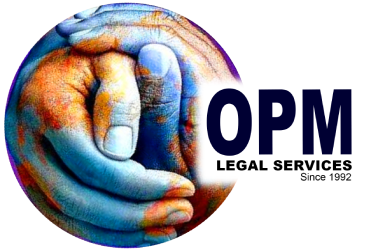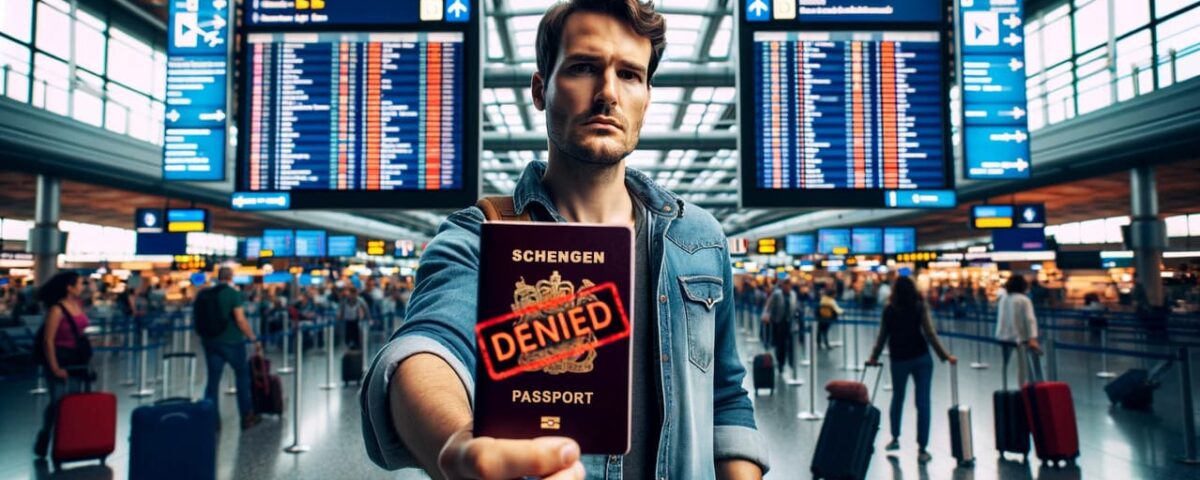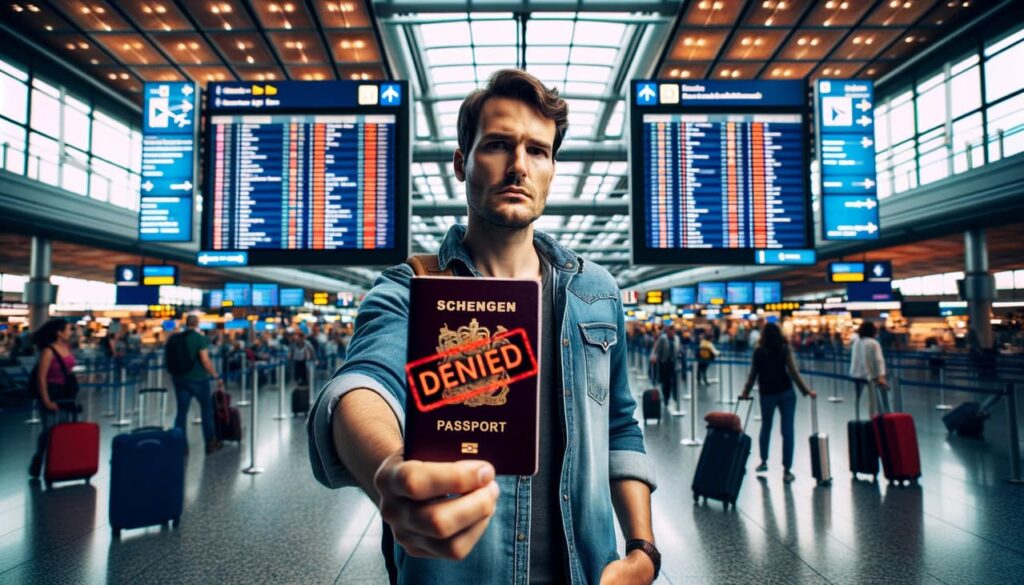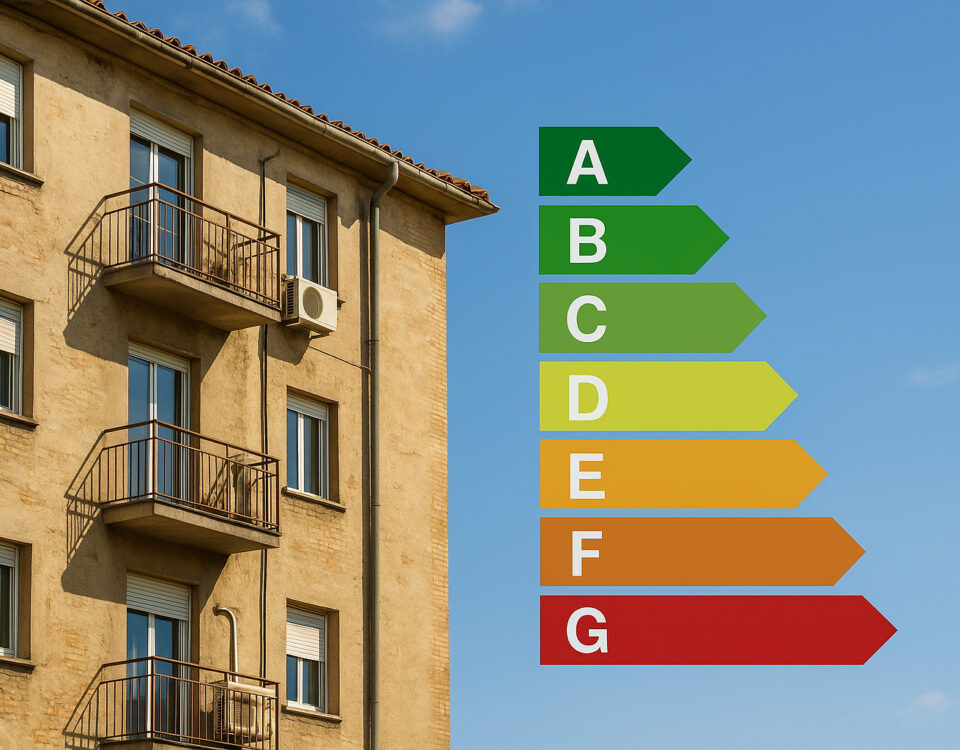
Extraordinary tax consulting
19/03/2024
How can I get an anonymous card?
25/03/2024Has a friend or family member had a Schengen Zone visa denied by a European consulate? We explain what to do
A Schengen Zone visa denied is a not insignificant obstacle for those who aspire to travel within Europe. Moreover, it entails a number of complications not only for the applicant but also for those from within the Schengen area who have extended the invitation.
This situation can be particularly frustrating when the refusal is not adequately justified, leaving the applicant in a state of uncertainty and confusion about what action to take.
If your friend or family member wishes to apply for a Schengen Zone visa, it is necessary for them to comply with all the requirements, and it is helpful to consult an expert to learn both the requirements and the tricks for easily complying with them.
To avoid a denied Schengen Zone visa, it is useful to analyze the requirements. Obtaining a Schengen Zone visa allows non-EU travelers to visit member states for up to 90 days in every 180 days for tourism, business, family visits, or transit.
Process for applying for a Schengen visa
The application process requires the submission of various documents and compliance with certain criteria established by the Schengen states to ensure that the stay is temporary and legitimate. Below, the general requirements for applying for a Schengen visa are reviewed:
- Completed Application Form: the first step is to accurately complete the Schengen visa application form. This document must be completed in its entirety, signed and submitted with the other required documents.
- Passport Photo: You must provide at least one recent photo, which must conform to the standards for passport photos, i.e. clear background, no head covering (unless it is for religious reasons), and the face must occupy 70-80% of the photo.
- Passport or Travel Document: the passport must have a remaining validity of at least three months (recommended 6 months) beyond the intended date of departure from the Schengen area and must contain at least two blank pages.
- Insurance Coverage: travel insurance covering medical expenses and repatriation for any emergencies is required, with a minimum coverage of 30,000 euros, valid in all Schengen Zone member states.
- Proof of Economic Livelihood: Applicants must prove that they have sufficient economic means for the intended period of stay and to return to their country of origin or residence, or to continue to a third destination. This proof must be well documented and we can explain how to do it.
- Travel Itinerary: a detailed travel plan must be submitted, including dates of arrival and departure, itinerary within the Schengen Zone, hotel reservations, or a letter of invitation from a Schengen resident host.
The basic requirements ver avoid a denied Schengen Area visa
– Return Tickets: it is advisable to provide proof of a return ticket or travel itinerary showing the intention to leave the Schengen Area before the visa expires.
– Proof of Purpose of Travel: depending on the nature of the trip, additional documentation may be required, such as invitation letters, event reservations, confirmation of business appointments, or a statement describing the purpose of the trip.
– Consular Statement: in some cases, a signed consular statement may be required, attesting to the veracity of the information provided.
It is important to note that these requirements may vary slightly depending on the Schengen country processing the application and the specific purpose of the trip.
Therefore, it is advisable to always check with the relevant embassy or consulate for updated and accurate information before beginning the application process.
Schengen Zone Visa by Invitation
When applying for a Schengen Zone visa for the purpose of visiting friends or family, one of the key documents that may be required is an invitation letter. This letter plays a crucial role in the visa application process, as it provides consular authorities with additional details regarding the purpose and circumstances of the planned trip.
Listed below are the requirements and information generally needed for an invitation letter intended to support a Schengen visa application:
Applicant Information: the letter should include complete details about the person being invited, including full name, date of birth, address and passport details. It is important that this information exactly matches that provided in the visa application.
– Details about the Invitee: The Invitee should provide his or her personal information, such as full name, address of residence within the Schengen Zone, telephone number, and possibly a document attesting to his or her legal residence (e.g., a copy of ID or residence permit).
– Relationship between Invitee and Applicant: it is essential to specify the nature of the relationship between the invitee and visitor (e.g., family ties, friendship, professional relationships) and provide any relevant details that may support the visa application.
– Purpose of Travel and Duration: the letter should clarify the purpose of the visit (e.g., family visit, social event, holiday) and indicate the exact dates or expected period of stay.
– Accommodation Details: the inviter should indicate whether it will provide accommodation for the visitor for the duration of the visitor’s stay and provide the specific address at which the visitor will be staying.
Key economic part of avoiding a denied Schengen Area visa
– Statement of Economic Support (if applicable): if the inviter assumes financial responsibility for the visitor, during the visitor’s stay, this must be clearly stated in the letter, including details on how they intend to support the visitor (e.g., food, lodging, medical expenses, etc.).
– Signature of the Invitee: The letter must be signed by the invitee. A handwritten signature may be required to give the letter a higher degree of authenticity.
– Enclosures: it may be useful to attach additional documentation to the letter of invitation, such as bank statements, tax returns, or documents attesting to the inviter’s employment and financial stability, especially if you state that you will support the visitor financially.
The invitation letter does not in itself guarantee visa approval, but it is an important element that helps demonstrate the purpose of the trip and the visitor’s intentions to leave the Schengen Zone when the visa expires. It is advisable that both the inviter and the visitor check with the relevant embassy or consulate for any specific requirements or preferred formats for the invitation letter.
What to do if they deny the visa?
Within the European and Italian regulatory context, the European Court of Justice has established clear criteria regarding the obligation of consulates to give reasons when denying visas.
This provision is based on the principle of transparency and protection of individual rights, emphasizing the importance of clear communication between consular authorities and applicants.
In the absence of valid reasons, the refusal of a visa is not only a violation of the legitimate interest of the foreigner seeking to enter the Schengen area but also represents an infringement of the subjective rights of the Union citizen who extended the invitation.
Faced with such a denial, the applicant is faced with a path that may seem tortuous and complex.
The main way to challenge the decision begins with a professional analysis of the denial by the consulate and in case requesting reconsideration based on facts and laws in force. Typically in this petition you will get the denied Schengen Zone visa duly issued.
If unsuccessful, it is necessary to appeal the denial order before the Administrative Court in the Zone Schengen country, for general cases, or the ordinary court having jurisdiction over family reunification issues, within established procedural deadlines.
This legal action not only requires a thorough understanding of the legal basis on which to base the appeal but also involves navigating through the complexities of the legal system.
A crucial aspect to consider, moreover, is the possibility that the denial was influenced by an alert within the Schengen Information System.
In such a case, it becomes critical for the applicant, through the support of legal counsel, to request access to the information about him or her within the system and, if possible, to have the alert that contributed to the visa denial removed.
The solution at hand
It should be emphasized that the solution to a denied Schengen Area visa requires not only an understanding of the reasons underlying the denial but also a proactive strategy to challenge the decision.
The support of an experienced immigration attorney therefore becomes a key element in navigating the appeals process, with the goal of overturning the denial and allowing the applicant to realize his or her travel plans within the Schengen Area.
In this context, information plays a key role, as it enables those involved to fully understand their rights and the legal options available to them, highlighting the importance of transparency and proper justification at all stages of the visa process.
Once a Schengen Zone visa has been obtained, options for obtaining a residence permit can be explored, depending on the case. A brief phone consultation can clear your mind and avoid a denied Schengen Zone visa.





